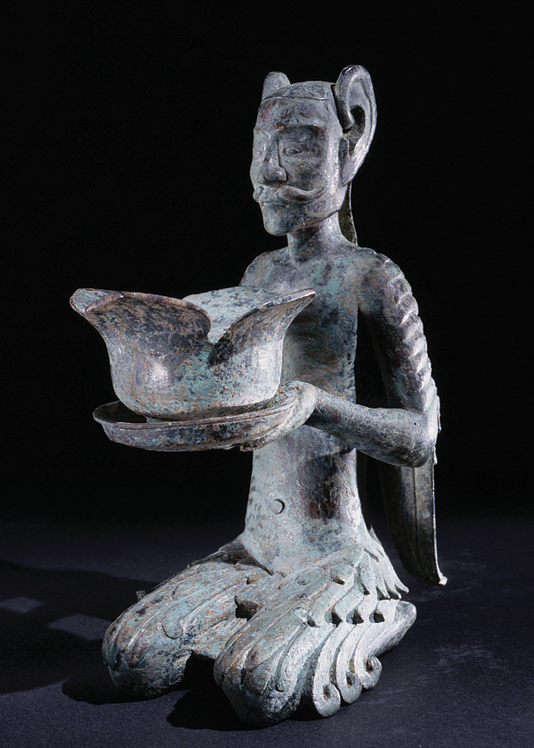A History of World Societies:
Printed Page 96
A History of World Societies Value
Edition: Printed Page 95
Zhou Politics
The early Zhou period is the first one for which transmitted texts exist in some abundance. The Book of Documents (ca. 900 B.C.E.) describes the Zhou conquest of the Shang as the victory of just and noble warriors over decadent courtiers led by an irresponsible and sadistic king. These documents also show that the Zhou recognized the Shang as occupying the center of the known world, were eager to succeed them in that role, and saw history as a major way to legitimate power.
Like the Shang kings, the Zhou kings sacrificed to their ancestors, but they also sacrificed to Heaven. The Book of Documents assumes a close relationship between Heaven and the king, who was called the Son of Heaven. According to the documents, Heaven gives the king a mandate to rule only as long as he rules in the interests of the people. Because the last king of the Shang had been decadent and cruel, Heaven took the mandate away from him and entrusted it to the virtuous Zhou kings. Because this theory of the Mandate of Heaven does not seem to have had any place in Shang cosmology, it may have been developed by the early Zhou rulers as a kind of propaganda to win over the former subjects of the Shang. Whatever its origins, it remained a central feature of Chinese political ideology from the early Zhou period on.

Rather than attempt to rule all their territories directly, the early Zhou rulers set up a decentralized feudal system. They sent relatives and trusted subordinates with troops to establish walled garrisons in the conquered territories. Such a vassal was generally able to pass his position on to a son, so that in time the domains became hereditary. By 800 B.C.E. there were about two hundred lords with domains large and small. Each lord appointed officers to serve him in ritual, administrative, or military capacities. These posts and their associated titles tended to become hereditary as well.
The decentralized rule of the early Zhou period carried within it the danger that the regional lords would become so powerful that they would no longer obey the commands of the king. As generations passed and ties of loyalty and kinship grew more distant, this happened. In 771 B.C.E. the Zhou king was killed by an alliance of non-
The revived Zhou Dynasty never fully regained control over its vassals, and China entered a prolonged period without a strong central authority. For a few centuries a code of chivalrous or sportsmanlike conduct still regulated warfare between the states: one state would not attack another that was in mourning for its ruler; during battles one side would not attack before the other side had time to line up; ruling houses were not wiped out, so that successors could continue to sacrifice to their ancestors; and so on. Thereafter, however, such niceties were abandoned, and China entered a period of nearly constant conflict.